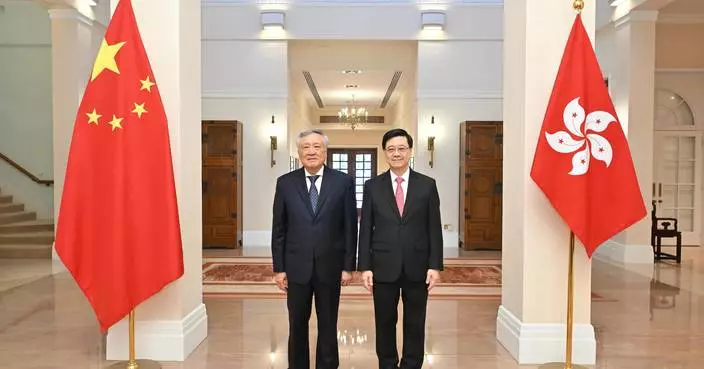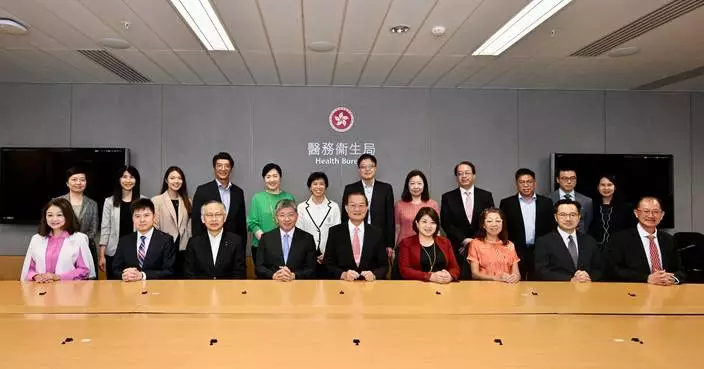Record of discussion of meeting of Exchange Fund Advisory Committee Currency Board Sub-Committee held on July 5
The following is issued on behalf of the Hong Kong Monetary Authority:
(Approved for Issue by the Exchange Fund Advisory Committee on July 25, 2024)
Report on Currency Board Operations (April 25 – June 25, 2024)
-----------------------------------------------------------------------
The Currency Board Sub-Committee (Sub-Committee) noted that the Hong Kong dollar (HKD) traded within a range of 7.7987 – 7.8294 against the US dollar (USD) during the review period. The HKD exchange rate strengthened between late April and mid-May, supported by dividend-related funding demand and vibrant equity market activities, and then remained largely stable. HKD interbank rates continued to track the USD rates while also being affected by local supply and demand. The Convertibility Undertakings were not triggered and the Aggregate Balance was stable at around HK$45 billion. No abnormality was noted in the usage of the Discount Window. Overall, the HKD exchange and interbank markets continued to trade in a smooth and orderly manner.
The Sub-Committee noted that the Monetary Base increased to HK$1,917.51 billion at the end of the review period. In accordance with the Currency Board principles, all changes in the Monetary Base had been fully matched by changes in foreign reserves.
The Report on Currency Board Operations for the review period is atAnnex.
Monitoring of Risks and Vulnerabilities
-------------------------------------------
The Sub-Committee noted that asynchronous developments across advanced economies (AEs) on the growth and inflation fronts had driven a divergence in their central banks' recent policy actions. While the US Federal Reserve (the Fed) stayed put in June amidst sticky inflation and solid job growth, a number of AE central banks had started to lower rates. Looking ahead, the Fed's "high for longer" forward guidance might continue to fuel USD strength and weigh on the exchange rates of emerging market Asian economies while the still-elevated global interest rates could pose challenges to asset valuation and the private sector's credit quality.
The Sub-Committee noted that economic recovery in Mainland China remained uneven, with stronger external trade but sluggish domestic demand and property market activities. Market sentiment on the Mainland economy improved somewhat after a more supportive policy tone from the April Politburo meeting, where the authorities pledged to reduce housing inventory, but the outlook remained challenging given the complicated geo-strategic environment.
The Sub-Committee noted that in Hong Kong, economic activities continued to expand in Q1 2024, underpinned by a notable increase in merchandise exports alongside the improvement in external demand and the upturn in the global technology cycle. Looking ahead, the domestic economy was expected to continue to recover at a moderate pace in 2024, but the growth outlook would face evolving risks and uncertainties relating to the US policy rate path, global economic prospects and geopolitical tensions. While residential market transactions had been active since the policy relaxations in late-February, market sentiment turned cautious in May amid increased new property launches at competitive prices and renewed uncertainty surrounding the US policy rate path. Meanwhile, the commercial real estate market remained subdued, especially in the office segment.

Source: AI-generated images
DH signs Co-operation Arrangement on Research for Quality Testing and Standards of Chinese Medicines with Experimental Research Center of the China Academy of Chinese Medical Sciences to promote implementation of innovation and high-quality development of traditional Chinese medicine
The Director of Health, Dr Ronald Lam, today (September 11) witnessed in Beijing the Department of Health (DH) and the Experimental Research Center (ERC) of the China Academy of Chinese Medical Sciences (CACMS), which is a subsidiary organisation under the National Administration of Traditional Chinese Medicine (NATCM), signing a Co-operation Arrangement on Research for Quality Testing and Standards of Chinese Medicines (Co-operation Agreement) that covers a period of five years. The Co-operation Agreement reinforces the exchange and collaboration, jointly promote the modernisation and innovation of Chinese medicines, as well as the advancement of high-quality development of Chinese medicines.
Witnessed by Dr Ronald Lam, Director of the Department of International Co-operation (Office of Hong Kong, Macao & Taiwan Affairs) of the NATCM, Mr Wu Zhendou, and the Vice President of the CACMS, Dr Yang Hongjun, the Co-operation Agreement was signed by the Assistant Director of Health (Chinese Medicine), Dr Edmund Fong, and the Deputy Director of the ERC, Dr Yuan Yuan.
The areas of collaboration include reinforcement on research and standardization of Chinese medicines quality testing, establishment of Chinese medicines quality testing data platforms, holding expert meetings on different fields of Chinese medicines jointly. The Co-operation Agreement enhances the standard of local Chinese medicines testing technology, reinforces the exchange and collaboration on testing technology, nurtures innovative talents and further foster the internationalisation of Chinese medicines, so as to align with the national development strategies for Chinese medicines as outlined in the Development Plan for Traditional Chinese Medicine during the 14th Five-Year Plan Period.
"I would like to express my heartfelt gratitude to the NATCM and the CACMS for their continuous support to the DH, including sending Chinese medicine experts to join Hong Kong to combat the COVID-19 pandemic, arranging acupuncture experts to provide guidance and training for local Chinese medicine practitioners on smoking cessation services with the Chinese medicine and acupuncture, sending Chinese medicine experts to assist Hong Kong Special Administrative Region (HKSAR) in conducting the Chinese Medicine Practitioners Licensing Examination, and inviting HKSAR Government to participate in the 'the Fourth National Survey of Chinese Materia Medica Resources' and providing guidance in various technical aspects. We have maintained close collaboration on the inheritance and innovation of Chinese medicine and to the development of global health over the years. I earnestly look forward to deepening our co-operation and exchange in Chinese medicine through the Co-operation Agreement signed today, and continue to work together to build a healthy China, healthy Greater Bay Area, and a healthy Hong Kong!", Dr Lam said.
After the signing ceremony, Dr Lam visited the ERC and the National Resource Center for Chinese Materia Medica of the CACMS, to learn about the latest development of Chinese medicines testing and research work in the Mainland and had discussion with professional staff in the laboratories. Dr Lam stated that upon the completion and commissioning of the new building of the Government Chinese Medicines Testing Institute, there will be more opportunities for both parties to collaborate on Chinese medicines research, allowing more research results to be published in the new journal Science of Traditional Chinese Medicine.
The DH has been actively facilitating exchange and co-operation with the NATCM in the testing and reference standard research of Chinese medicines. Both parties will implement the work related to promoting the high-quality development of the traditional Chinese medicines industry as outlined in the Development Plan for Traditional Chinese Medicine during the 14th Five-Year Plan Period, including the joint construction of a quality testing platform for Chinese medicines, and accelerating the standardisation, informatisation, modernisation and internationalisation of Chinese medicines. Under this synergistic effect, it can further promote the Chinese medicines industry towards high-quality development.

DH signs Co-operation Arrangement on Research for Quality Testing and Standards of Chinese Medicines with Experimental Research Center of the China Academy of Chinese Medical Sciences to promote implementation of innovation and high-quality development of traditional Chinese medicine Source: HKSAR Government Press Releases

DH signs Co-operation Arrangement on Research for Quality Testing and Standards of Chinese Medicines with Experimental Research Center of the China Academy of Chinese Medical Sciences to promote implementation of innovation and high-quality development of traditional Chinese medicine Source: HKSAR Government Press Releases











